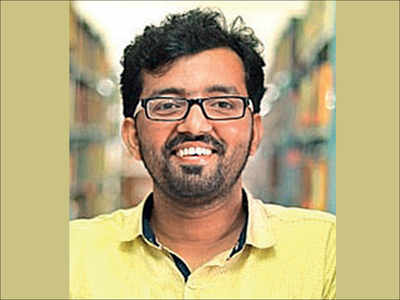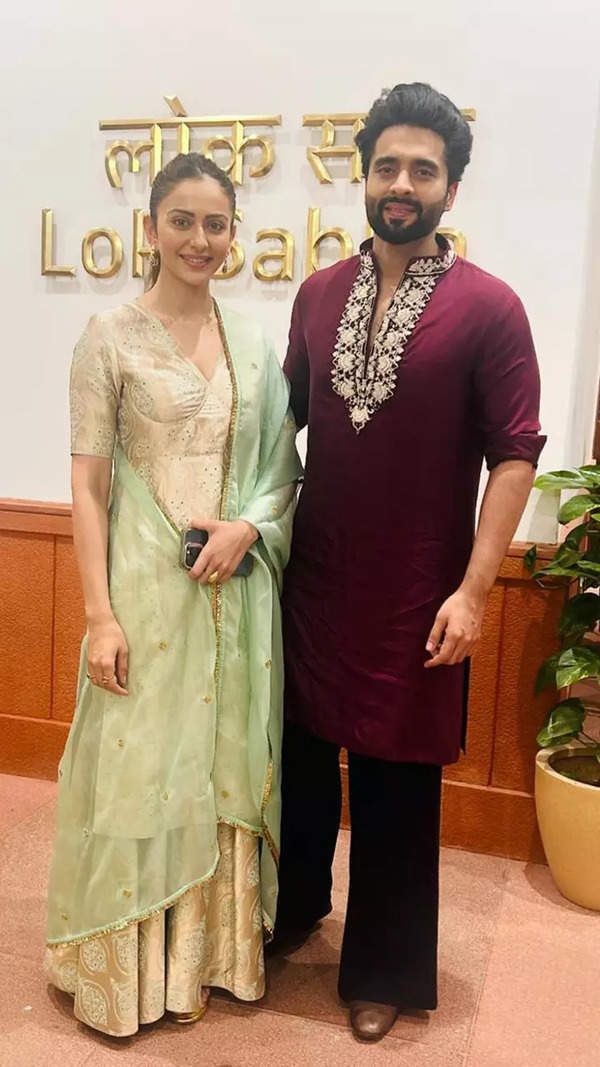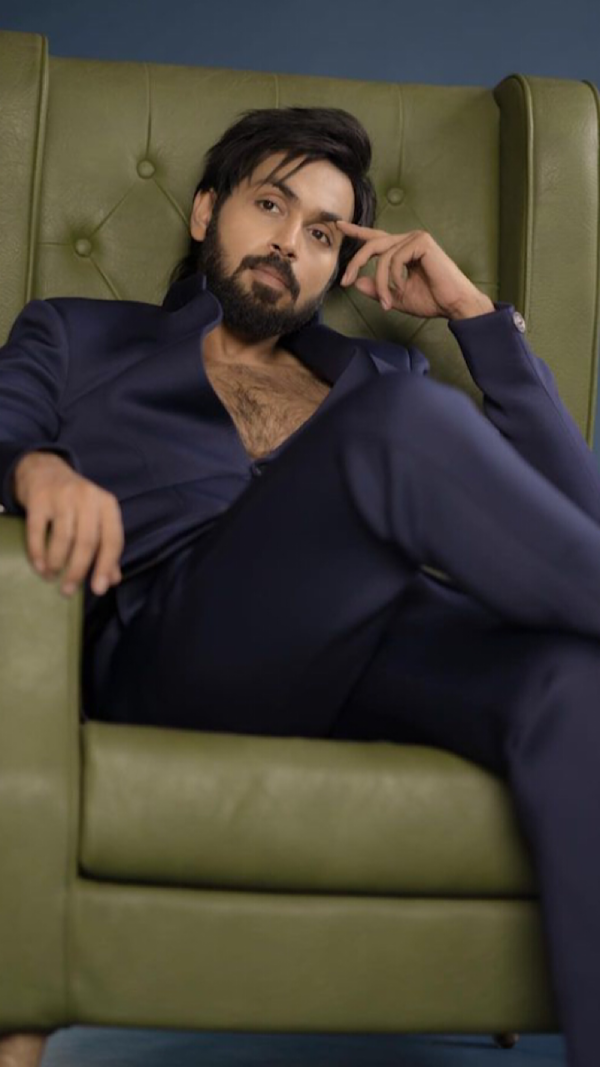- News
- Education (Old) News
- Why doing PhD in Netherlands is just like any EU University
This story is from November 11, 2019
Why doing PhD in Netherlands is just like any EU University
Just like any EU University, it is possible to do a PhD in the Netherlands, if the candidate has a strong research proposal, statement of purpose and curriculum vitae

Mahmood Kooriadathodi, PhD in History from Leiden University.
Doctoral candidates in the Netherlands receive benefits and rights at par with the university professors or lecturers in the country
From learning to ride a bicycle to establishing the Leiden Centre for Indian Ocean Studies, Mahmood Kooriadathodi has gathered varied experiences as a researcher at Leiden University, Netherlands. His research and teaching focus on the global history, histories of the Indian Ocean, law, religion and Afro-Asian connections in the premodern world.
The university boasts of having the largest collection of study material and research papers related to the history of Asia and Africa.This prompted Mahmood to narrow down on Leiden University as the collections were crucial for his research.
"While applying to study abroad, I came to know that Leiden hosts one of the largest collections of Islamic manuscripts, rare books and materials, especially from Southeast Asia and the Middle East. The materials were extremely important for the research I had in mind. Hence, there were no second thoughts," says Mahmood, who completed his PhD in History from Leiden University in 2016 and since then has also been teaching there.

"The conferences allowed me and my colleague, Sanne Ravensbergen, to build up a network of scholars in the field. With some other colleagues, I also managed to establish the Leiden Centre for Indian Ocean Studies, which is a platform to bring together national and international scholars interested in the study of the Indian Ocean," says the 31-year old researcher.
DOING PhD IN EUROPE
In the Netherlands, the PhD candidates are at par with the academic staff of the university. They get the basic benefits and rights similar to any university professor or lecturer.
"The situation is more or less the same in other European countries. I did not have to look for other jobs because of a handsome scholarship, which doubled up as a salary," says Mahmood.
The admission procedures for doctoral studies vary not only from one country to another in Europe, but within universities and departments as well. "It is comparatively easier to get admission to do a PhD in an European university, if you have a good research proposal, statement of purpose (SOP) and curriculum vitae (CV). However, it is difficult to find scholarships to conduct research for 3-5 years. The European doctoral programmes are quite different from the North American systems where you get scholarships along with your admission," adds Mahmood.
He points out that the best advantages of studying overseas include international exposure, access to a large pool of academic resources and becoming a part of the global citizenry that directly or indirectly shapes the future of a student's discipline.
LIFE IN NETHERLANDS
After joining Leiden, Mahmood was required to do coursework for a year in History and the Dutch language. "The Dutch language was a sticky wicket.
My classmates consisted of international students and we relied on each other for support while studying and adjusting to the Dutch lifestyle." One of the biggest challenges, says Mahmood, was the commute as the Dutch society is highly dependent on bicycles for riding up to 10-15 km. He, on the other hand, did not know how to ride one.
"My house was 3 km away from the university and it was difficult to walk every day or wait for buses. Soon after settling down, I learnt to ride a bicycle. After that, I started to ride to the university along with other classmates. The comradery worked wonders and made the Netherlands my second home," says Mahmood.
The iconic canals, old windmills, green meadows, and colourful gardens stringing through the city, make life and living immensely serene and peaceful in the Netherlands.
In Mahmood's words, "Enraptured by the city's charms, one hardly feels homesick in the country."
THE ROAD AHEAD
Mahmood, who is a Kerala-origin researcher was recently awarded a grant worth 2,50,000 Euros (Rs 2 crore) from the Dutch National Research Council (NWO) for his project 'Matriarchal Islam: Gendering Sharia in the Indian Ocean'.
"I will be conducting fieldworks in India, Indonesia, Mozambique, Malaysia, Comoros, Sri Lanka, UK and Singapore. I do understand and speak some of the languages in these nations such as Arabic, Malay, Bahasa Indonesia, and a bit of Tamil, but I am also keen on studying Bahasa Minang, Swahili, Portuguese and French in the next three years, which will help me in ethnographic and archival researches," adds Mahmood, who spent 12 years after fifth standard studying Islam and four languages along with the school curricula at a residential institution - Darul Huda Islamic Academy in Kerala.
From learning to ride a bicycle to establishing the Leiden Centre for Indian Ocean Studies, Mahmood Kooriadathodi has gathered varied experiences as a researcher at Leiden University, Netherlands. His research and teaching focus on the global history, histories of the Indian Ocean, law, religion and Afro-Asian connections in the premodern world.
The university boasts of having the largest collection of study material and research papers related to the history of Asia and Africa.This prompted Mahmood to narrow down on Leiden University as the collections were crucial for his research.
"While applying to study abroad, I came to know that Leiden hosts one of the largest collections of Islamic manuscripts, rare books and materials, especially from Southeast Asia and the Middle East. The materials were extremely important for the research I had in mind. Hence, there were no second thoughts," says Mahmood, who completed his PhD in History from Leiden University in 2016 and since then has also been teaching there.
An alumnus of Jawaharlal Nehru University (JNU), Delhi, Mahmood received scholarships through the Cosmopolis programme, funded by the Dutch government, and the Erasmus Mundus programme (IBIES Consortium) of the European Union (EU) to pursue his studies in the Netherlands. In general, students hailing from the Humanities and Social Sciences departments do not attain industrial exposures and internships. But, this could not pose to be a hindrance for Mahmood in organising international conferences on the 'History of law in the Indian Ocean world', bringing together more than 50 renowned scholars from all over the world.

"The conferences allowed me and my colleague, Sanne Ravensbergen, to build up a network of scholars in the field. With some other colleagues, I also managed to establish the Leiden Centre for Indian Ocean Studies, which is a platform to bring together national and international scholars interested in the study of the Indian Ocean," says the 31-year old researcher.
DOING PhD IN EUROPE
In the Netherlands, the PhD candidates are at par with the academic staff of the university. They get the basic benefits and rights similar to any university professor or lecturer.
"The situation is more or less the same in other European countries. I did not have to look for other jobs because of a handsome scholarship, which doubled up as a salary," says Mahmood.
The admission procedures for doctoral studies vary not only from one country to another in Europe, but within universities and departments as well. "It is comparatively easier to get admission to do a PhD in an European university, if you have a good research proposal, statement of purpose (SOP) and curriculum vitae (CV). However, it is difficult to find scholarships to conduct research for 3-5 years. The European doctoral programmes are quite different from the North American systems where you get scholarships along with your admission," adds Mahmood.
He points out that the best advantages of studying overseas include international exposure, access to a large pool of academic resources and becoming a part of the global citizenry that directly or indirectly shapes the future of a student's discipline.
LIFE IN NETHERLANDS
After joining Leiden, Mahmood was required to do coursework for a year in History and the Dutch language. "The Dutch language was a sticky wicket.
My classmates consisted of international students and we relied on each other for support while studying and adjusting to the Dutch lifestyle." One of the biggest challenges, says Mahmood, was the commute as the Dutch society is highly dependent on bicycles for riding up to 10-15 km. He, on the other hand, did not know how to ride one.
"My house was 3 km away from the university and it was difficult to walk every day or wait for buses. Soon after settling down, I learnt to ride a bicycle. After that, I started to ride to the university along with other classmates. The comradery worked wonders and made the Netherlands my second home," says Mahmood.
The iconic canals, old windmills, green meadows, and colourful gardens stringing through the city, make life and living immensely serene and peaceful in the Netherlands.
In Mahmood's words, "Enraptured by the city's charms, one hardly feels homesick in the country."
THE ROAD AHEAD
Mahmood, who is a Kerala-origin researcher was recently awarded a grant worth 2,50,000 Euros (Rs 2 crore) from the Dutch National Research Council (NWO) for his project 'Matriarchal Islam: Gendering Sharia in the Indian Ocean'.
"I will be conducting fieldworks in India, Indonesia, Mozambique, Malaysia, Comoros, Sri Lanka, UK and Singapore. I do understand and speak some of the languages in these nations such as Arabic, Malay, Bahasa Indonesia, and a bit of Tamil, but I am also keen on studying Bahasa Minang, Swahili, Portuguese and French in the next three years, which will help me in ethnographic and archival researches," adds Mahmood, who spent 12 years after fifth standard studying Islam and four languages along with the school curricula at a residential institution - Darul Huda Islamic Academy in Kerala.
End of Article
FOLLOW US ON SOCIAL MEDIA









